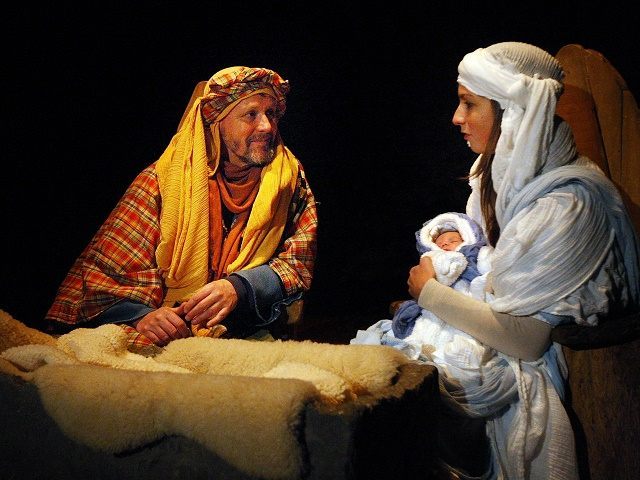Atheists should not feel left out of Christmas celebrations, according to a prominent Catholic priest, who suggests ten reasons the quintessentially Christian feast should matter to everyone–believer and non-believer alike.
Father Dwight Longenecker, a well-known preacher and convert to Catholicism from Anglicanism, offers atheists ten “secular” reasons to celebrate the feast, but admits that he also hopes that they might “stop and think twice” about the deeper meaning of the holiday, and about the One being celebrated.
“Jesus matters and therefore his birth matters,” writes Longenecker, but Christmas also compels “all men and women to think again about their true values and what really matters to all of us as human beings.”
The priest starts out speaking of the value of children, who acquired a deeper social value with the coming of Christianity. In ancient civilizations prior to Christ’s coming, he notes, “slaves had a higher status than children,” but then “God became a little child and opened humanity’s eyes to the fact that children are a treasure.”
Even before his birth, Christ was a fetus—an unborn child, Longenecker writes. “In doing so he sanctified the womb of woman and gave eternal worth to all the unborn,” and so a “society that kills its unborn children is a brutal, cruel and heartless society of death.”
The image of the Christ child in the manger, the priest suggests, flips worldly priorities on their head, showing that “the Lowest are the Highest”—a theme running through Christmas and the entire message of Christianity itself. “Christmas,” he writes, “teaches us that the little people are the precious people.”
One of the priest’s “reasons” is highly countercultural, as he proposes that “Purity is Power” and that the idea of the virgin birth still has meaning and value for today’s world. “If the sexual drive is not contained and channeled for good it rots society, weakens families and disintegrates trust, love and stability,” Longenecker writes, and so “Purity is Power.”
The mystery surrounding Christmas also suggests that there is more going on in the world than what we perceive with our senses, the priest writes. “Even if an atheist does not believe it should give him pause for thought.” Christmas, he says, is “a reminder to all that it is natural to believe in the supernatural and that heaven and earth are not so distant from each other.”
As an answer to prophecies and a promise of salvation, Christmas also reminds all of us of the existence of providence at work in the universe, the priest argues. “In our relativistic, subjective and individualistic age it is easy to believe that there is no plan, no providence, no great design and no great designer,” he says, but this would be a mistake. “The Christmas story forces everyone to ponder again whether or not there might just be an overarching plan for the world and for human history.”
Christmas also underscores the importance of religion, which he calls an “urge to connect” with transcendence and a motivation to do great things. “Even if you are not a believer, Christmas is a time to celebrate the real contributions of religion to human civilization,” he says, “the art, the architecture, the music, the education, the sciences, the justice and moral code.”
Father Longenecker invites his readers to pause for a moment to think what the world was like before the coming of Christ. “It was a cruel and heartless place. Power was everything. The strong won. The weak were killed,” he says. But Jesus really changed all that. “Whether you believe the Christmas story or not, you can celebrate the fact that at the heart of the story is a message of reconciliation, forgiveness, peace, justice and goodwill to all,” he says.
A final message offered by Christmas is courage not to be afraid in the midst of a dark, cold world. Fear paralyzes us, yet at Christmas “perfect love casts out fear,” Longenecker says. Even if you do not believe the story, Longenecker writes, “you can believe the message and celebrate the hope that fear can be banished by perfect love.”
Whether or not atheists will be persuaded by Father Longenecker’s arguments, they will at least gain a better sense of the “reason for the season” and why Christians find the feast so compelling and so worth celebrating.
Follow Thomas D. Williams on Twitter @tdwilliamsrome.

COMMENTS
Please let us know if you're having issues with commenting.